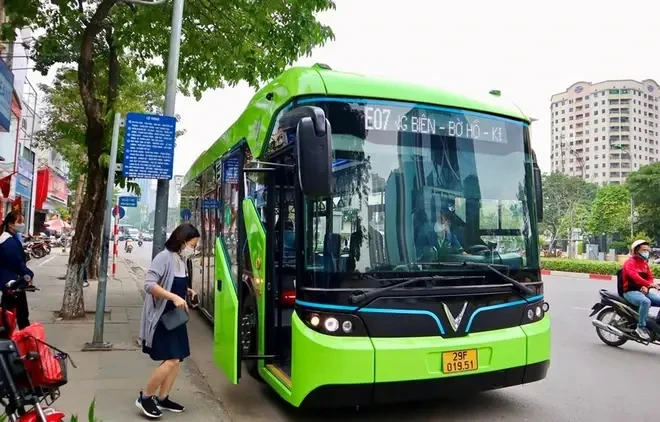Friday, 05/07/2024 16:54 (GMT+7)
The Hanoi People's Council on July 4 passed a plan to achieve a zero-emission bus fleet by 2035 via phasing out diesel vehicles in favour of electric ones.
 |
| A Vinbus in Hanoi (Photo: VNA) |
Accordingly, between 2026 and 2030, Hanoi aims for a mix of electric buses (50%) and buses powered by cleaner burning fuels like liquefied natural gas (LNG) or compressed natural gas (CNG) (50%). The estimated financial investment for this transition is 43 trillion VND (1.79 billion USD).
The plan gives priority to electrification of buses operating in the central urban areas (within Ring Road 4). In addition, new bus routes would prioritize the use of clean energy.
By 2030, a significant portion (70-90%) of the existing diesel bus fleet will be replaced with clean energy ones.
All buses operating in the city will go electric, achieving a zero-emission bus fleet for the city between 2031 and 2035.
The Hanoi People's Council has requested the People's Committee to ensure the effective usage of investment capital in the phase-out plan.
The municipal authority affirmed that Hanoi needed to map out power supply lines for its buses, as well as develop infrastructure for charging stations and fire safety measures, among other initiatives. Policies should all aim towards the complete phasing out of vehicles running on fossil fuel.
Hanoi currently operates 154 bus lines, including 2,034 state-subsidized buses, of which 277 use clean energy./.
BTA